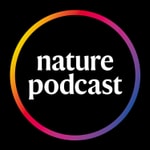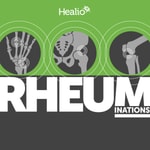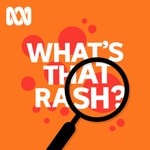Nature Podcast – Details, episodes & analysis
Podcast details
Technical and general information from the podcast's RSS feed.

Nature Podcast
Springer Nature Limited
Frequency: 1 episode/5d. Total Eps: 818

Hosted on Acast. See acast.com/privacy for more information.
Recent rankings
Latest chart positions across Apple Podcasts and Spotify rankings.
Apple Podcasts
🇺🇸 USA - science
30/07/2025#77🇩🇪 Germany - science
29/07/2025#82🇺🇸 USA - science
29/07/2025#90🇬🇧 Great Britain - science
28/07/2025#94🇩🇪 Germany - science
28/07/2025#88🇺🇸 USA - science
28/07/2025#83🇨🇦 Canada - science
27/07/2025#73🇬🇧 Great Britain - science
27/07/2025#95🇩🇪 Germany - science
27/07/2025#83🇺🇸 USA - science
27/07/2025#85
Spotify
No recent rankings available
Shared links between episodes and podcasts
Links found in episode descriptions and other podcasts that share them.
See allRSS feed quality and score
Technical evaluation of the podcast's RSS feed quality and structure.
See allScore global : 43%
Publication history
Monthly episode publishing history over the past years.
Long-sought 'nuclear clocks' are one tick closer
mercredi 4 septembre 2024 • Duration 31:24
In this episode:
00:45 Why a 'nuclear clock' is now within researchers’ reachResearchers have made a big step towards the creation of the long theorized nuclear clock, by getting the most accurate measurement of the frequency of light required to push thorium nuclei into a higher energy state. Such a timekeeper would differ from the best current clocks as their ‘tick’ corresponds to the energy transitions of protons and neutrons, rather than electrons. Nuclear clocks have the potential to be more robust and accurate than current systems, and could offer researchers new insights into fundamental forces present within atomic nuclei.
Research Article: Zhang et al.
News and Views: Countdown to a nuclear clock
Nature News: ‘Nuclear clock’ breakthrough paves the way for super-precise timekeeping
Editorial: Progress on nuclear clocks shows the benefits of escaping from scientific silos
The star that got partially shredded by a supermassive black hole, not just once, but twice, and how heatwaves could mangle bumblebees’ sense of smell.
Research Highlight: This unlucky star got mangled by a black hole — twice
Research Highlight: Bumblebees’ sense of smell can’t take the heat
By harnessing T cells to fine-tune the inflammation response, researchers have limited the damage caused by spinal injury in mice, an approach they hope might one day translate into a human therapy. Following injury to the central nervous system, immune cells rush to the scene, resulting in a complex array of effects, both good and bad. In this work researchers have identified the specific kind of T cells that amass at the site, and used them to create an immunotherapy that helps the mice recover more quickly from injuries by slowing damage to neurons.
Research article: Gao et al.
How unprecedented floods in Brazil have helped and hindered paleontologists, and the ‘AI scientist’ that does everything from literature review through to manuscript writing, to an extent.
Nature News: The race to save fossils exposed by Brazil’s record-setting floods
Nature News: Researchers built an ‘AI Scientist’ — what can it do?
Hosted on Acast. See acast.com/privacy for more information.
Audio long read: So you got a null result. Will anyone publish it?
vendredi 30 août 2024 • Duration 17:44
The 'file-drawer problem', where findings with null or negative results gather dust and are left unpublished, is well known in science. There has been an overriding perception that studies with positive or significant findings are more important, but this bias can have real-world implications, skewing perceptions of drug efficacies, for example.
Multiple efforts to get negative results published have been put forward or attempted, with some researchers saying that the incentive structures in academia, and the ‘publish or perish’ culture, need to be overturned in order to end this bias.
This is an audio version of our Feature: So you got a null result. Will anyone publish it?
Hosted on Acast. See acast.com/privacy for more information.
Rapid sepsis test identifies bacteria that spark life-threatening infection
mercredi 24 juillet 2024 • Duration 34:57
A newly-developed method that can rapidly identify the type of bacteria causing a blood-infection, and the correct antibiotics to treat it, could save clinicians time, and patient lives. Blood infections are serious, and can lead to the life-threatening condition sepsis, but conventional diagnostic methods can take days to identify the causes. This new method does away with some of the time-consuming steps, and the researchers behind it say that if it can be fully automated, it could provide results in less than a day.
Research Article: Kim et al.
11:49 Research Highlights
The discovery of a connection between three star-forming interstellar clouds could help explain how these giant structures form, and evidence of the largest accidental methane leak ever recorded.
Research Highlight: Found: the hidden link between star-forming molecular clouds
Research Highlight: Blowout! Satellites reveal one of the largest methane leaks on record
14:22 AIs fed AI-generated text start to spew nonsense
When artificial intelligences are fed data that has itself been AI-generated, these systems quickly begin to spout nonsense responses, according to new research. Typically, large language model (LLM) AI’s are trained on human-produced text found online. However, as an increasing amount of online content is AI-generated, a team wanted to know how these systems would cope. They trained an AI to produce Wikipedia-like entries, then trained new iterations on the model on the text produced by its predecessor. Quickly the outputs descended into gibberish, which highlights the dangers of the Internet becoming increasingly full of AI-generated text.
Research Article: Shumailov et al.
25:49 Briefing Chat
How psilocybin — the hallucinogenic compound found in magic mushrooms — resets communication between brain regions, and the surprise cancellation of a NASA Moon mission.
Nature News: Your brain on shrooms — how psilocybin resets neural networks
Nature News: NASA cancels $450-million mission to drill for ice on the Moon — surprising researchers
Hosted on Acast. See acast.com/privacy for more information.
Audio long read: Can giant surveys of scientists fight misinformation on COVID, climate change and more?
vendredi 26 mai 2023 • Duration 17:27
Shocked by the impact of online misinformation surrounding the COVID-19 pandemic, several researchers are launching efforts to survey scientists’ thinking on issues from vaccine safety to climate change. They hope that their projects will make scientific debate, and degrees of consensus, more visible and transparent, benefiting public conversation and policymaking. However, others suggest that these attempts might merely further politicize public debate.
This is an audio version of our Feature: Can giant surveys of scientists fight misinformation on COVID, climate change and more?
Hosted on Acast. See acast.com/privacy for more information.
‘Tree islands’ give oil-palm plantation a biodiversity boost
mercredi 24 mai 2023 • Duration 23:03
In this episode:
Global demand for palm oil has resulted in huge expansion of the palm plantations needed to produce it, causing widespread tropical deforestation and species loss. To address this, researchers planted islands of native trees among the palms in a large plantation, and showed that this approach increases ecosystem health, without affecting crop yields. The team say that while protecting existing tropical rainforests should remain a priority, tree islands represent a promising way to restore ecosystems.
Research article: Zemp et al.
The oldest identified ‘blueprints’ depict vast hunting traps with extraordinary precision, and fossil evidence that pliosaurs swimming the Jurassic seas may have been as big as whales.
Research Highlight: Oldest known ‘blueprints’ aided human hunters 9,000 years ago
Research Highlight: This gigantic toothy reptile terrorized the Jurassic oceans
We discuss some highlights from the Nature Briefing. This time, how shredded nappies could partially replace sand in construction, and how CRISPR helped crack the mystery of the death cap mushrooms’s deadly toxin.
Nature News: World’s first house made with nappy-blended concrete
Nature News: Deadly mushroom poison might now have an antidote — with help from CRISPR
Hosted on Acast. See acast.com/privacy for more information.
JWST shows an ancient galaxy in stunning spectroscopic detail
mercredi 17 mai 2023 • Duration 30:22
In this episode:
00:46 What JWST has revealed about an ancient galaxyResearchers have pointed the James Webb Space Telescope (JWST) at JD1, one of the universe's most distant known galaxies. The power of JWST has filled in some of the gaps in what was known about the galaxy, giving greater insight into its age, structure and composition. The team behind the work hope that learning more about how early galaxies like JD1 formed will help explain how the universe evolved into its present state.
Research article: Roberts-Borsani et al.
10:09 Research Highlights
Why your choice of soap might make you irresistible to mosquitoes, and how tardigrade-inspired claws help tiny robots cling to blood-vessels.
Research Highlight: Your favourite soap might turn you into a mosquito magnet
Research Highlight: Claws like a tardigrade’s give swimming microrobots a grip
12:34 How coral reef fish evolved to grow more quickly
Fish that live in coral reefs are some of the fastest growing in the world, despite the environment they live in being relatively nutrient poor. This contradiction has long puzzled researchers, but now, a team has looked deep into the evolutionary history of the fish and discovered a critical point in time when they shifted towards faster growth, much earlier than was previously thought.
Research article: Siqueira et al.
21:29 Briefing Chat
We discuss some highlights from the Nature Briefing. This time, the first frog thought to pollinate flowers, and a field-trial to vaccinate wild koalas against chlamydia.
Scientific American: This Frog May Be the First Amphibian Known to Pollinate Flowers
Associated Press: Koalas are dying from chlamydia. A new vaccine effort is trying to save them
Hosted on Acast. See acast.com/privacy for more information.
Nature's Take: Can Registered Reports help tackle publication bias?
vendredi 12 mai 2023 • Duration 26:00
Many researchers have been critical of the biases that the publication process can introduce into science. For example, they argue that a focus on publishing interesting or significant results can give a false impression of what broader research is finding about a particular field.
To tackle this, some scientists have championed the publication of Registered Reports. These articles split the peer review process in two, first critically assessing the methodology of a research study before data is collected, and again when the results are found. The idea being to encourage robust research regardless of the outcome.
In this episode of Nature's Take we discuss Nature's recent adoption of the format, the pros and cons of Registered Reports, and what more needs to be done to tackle publication bias.
Hosted on Acast. See acast.com/privacy for more information.
‘Pangenome’ aims to capture the breadth of human diversity
mercredi 10 mai 2023 • Duration 21:03
In this episode:
00:45 Making a more diverse human genome
The first draft of the human genome ushered in a new era of genetics research. Since its publication, researchers have constructed ever more accurate ‘reference genomes’ – baselines against which others are compared. But these are based on the DNA of a small number of people, and don’t represent the genetic variation known to exist across human populations. To address this, a consortium of researchers have published the first draft of a ‘pangenome’, which combines the genomes of 47 genetically diverse individuals. This draft provides a more complete picture of the human genome, and is the starting point for a project that aims to include sequences from 350 individuals.
Research article: Liao et al.
Research article: Vollger et al.
Research article: Guarracino et al.
News and Views Forum: Human pangenome supports analysis of complex genomic regions
08:33 Research Highlights
A wearable sensor that lets users see infrared light, and how a vulture’s culture can influence its dining habits.
Research Highlight: Wearable sensor gives a glimpse of ‘invisible’ light
Research Highlight: What drives a scavenger’s diet? Vulture culture
11:06 Briefing Chat
We discuss some highlights from the Nature Briefing. This time, a new phosphate-storing organelle found in fruit fly cells, and how extracted DNA revealed who held a deer-tooth pendant 20,000 years ago.
Nature News: New cellular ‘organelle’ discovered inside fruit-fly intestines
Nature News: Prehistoric pendant’s DNA reveals the person who held it
Hosted on Acast. See acast.com/privacy for more information.
Menopause and women’s health: why science needs to catch up
mercredi 3 mai 2023 • Duration 40:54
In this episode:
Nature’s Kerri Smith and Heidi Ledford join us to discuss two Features published in Nature looking at topics surrounding women’s health. The first looks at efforts to understand how menopause affects brain health, while the second takes a deep-dive into research funding and shows how conditions affecting women more than men receive less money.
Feature: How menopause reshapes the brain
Feature: Women’s health research lacks funding – these charts show how
18:15 Research Highlights
The herb that could be a new source of cannabinoid compounds, and the vibrating crystal that confirms Schrödinger’s cat.
Research Highlight: Old and new cannabis compounds are found in an African herb
Research Highlight: Schrödinger’s cat is verified by a vibrating crystal
20:34 The planet swallowed by a star
Stars have a finite lifespan, and for many their fate is to expand as they reach the end of their lives. It’s long been speculated that these growing stars will consume any planets in their way, but this process has never been seen directly. Now though, a chance observation led to a team catching a dying star in the act of eating a Jupiter-like planet in the distant Milky Way.
Research article: De et al.
30:25 Briefing Chat
We discuss some highlights from the Nature Briefing. This time, a clearer image of the supermassive black hole M87*, and how elephant seals catch some shut-eye while diving.
Nature News: Black-hole image reveals details of turmoil around the abyss
New York Times: Elephant Seals Take Power Naps During Deep Ocean Dives
Hosted on Acast. See acast.com/privacy for more information.
Audio long read: Conquering Alzheimer’s — a look at the therapies of the future
vendredi 28 avril 2023 • Duration 17:31
Last year, researchers announced that the Alzheimer’s drug lecanemab lowered the amount of amyloid protein plaques associated with the disease in the brains of participants in a clinical trial, and slowed their cognitive decline.
Now, researchers are looking to drug combinations, vaccines and gene therapy to tackle different stages of the disease, as they forge the next generation of treatments for the condition.
This is an audio version of our Feature: Conquering Alzheimer’s: a look at the therapies of the future
Hosted on Acast. See acast.com/privacy for more information.









